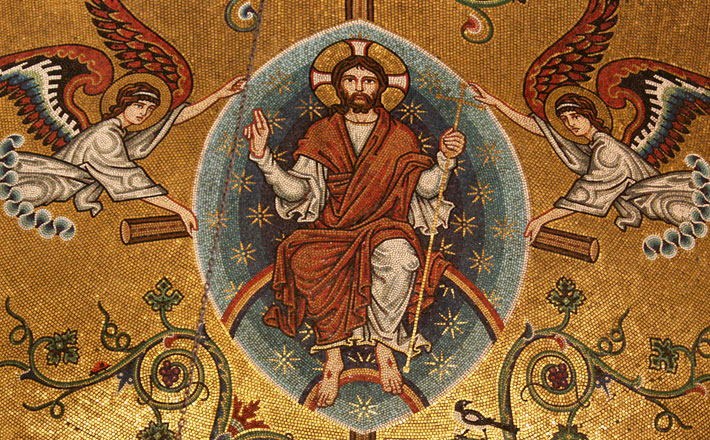Commentary on Psalm 22:25-31
Anne Lamott has famously said, “Hope begins in the dark, the stubborn hope that if you just show up and try to do the right thing, the dawn will come. You wait and watch and work: you don’t give up.”
While Psalm 22 cannot be reduced to these words, it does seem as though this contemporary perspective might be similar to the perspective of the Psalmist.
From Darkness to Dawn
Psalm 22 is a familiar Psalm of Lament that begins in the dark with one of Christ’s final statements on the cross: “My God, My God, why have you forsaken me?” However, this Psalm was not intended to be prophetic, and its original form was not Christocentric, even though Christians today will inevitably read it as Christocentric, making the connection between this Psalm and the words of Christ just as early Christians might have done.
Psalm 22 is the lament of a conflicted individual, and this is evident in the tension established early in the Psalm. Accusatory statements like “I cry by day, but you do not answer” (v.2) and “I am a worm” (v. 6) are juxtaposed with declarative statements such as “You are holy, enthroned on the praises of Israel” (v.3) and “You took me from the womb; you kept me safe” (v. 9). Indeed, the first twenty-one verses of the Psalm display an individual in distress, full of contradictory statements about the human plight and the goodness of God.
It is not until the final verses of the Psalm that the Psalmist’s timbre changes. Though initially conflicted, the Psalmist has waited, watched, worked, and persevered. Verse 25 shows that dawn has arrived for the Psalmist, who summons the whole community to experience the transformation the Psalmist has experienced and offer thanks and praise to God.
From Individual to Community
The first twenty-four verses of this Psalm remain in the first person voice, and they are an explicit dialogue with God. But, verse 25 becomes a testimony of sorts that answers the disruption presented in the litany of complaints and questions in the earliest verses of the Psalm. Verse 25 alters the tone of the litany and sets the individual, and even the whole community, towards a “right and creative relationship” with YHWH. Truly, “the individual’s experience should correspond to that of the community and should deepen its faith.”1
From verse 25 onward, the Psalmist establishes the strong implication that what YHWH has accomplished for the individual, YHWH will accomplish for the whole world. From the weak, the poor, and those of the lowest status in the community who must seek help from YHWH (v. 26) to the ends of the earth and all nations (v. 28-29), those who remember the Lord, turn to the Lord, and worship the Lord (v. 27) will find a generative faith (v. 30-31) that will eventually confirm and testify to the past, present, and future deeds of God.
Implications for Preaching
John Goldingay uses this Psalm to offer a counter argument to a common mode of Christian comfort: assuring those in suffering that God is present with them in their suffering. Psalm 22 shows us a contrast Goldingay says that “God was not present with this suppliant and does not expect us to pretend that this is so when it is not.” Rather, Psalm 22 invites those of us who experience suffering to find ways to remind God and us of God’s faithfulness, to remind God and us of God’s involvement in the world, to plea with God to change, and to believe strongly enough in our argument that God will, in fact, respond.2
To give this Psalm an explicitly Christocentric focus on the fifth Sunday of Easter might be to trace the dark days of Christ suffering on the cross to the promise that came with the dawn of the resurrection. Verses 25-31, when viewed from the dark days of Good Friday and Holy Saturday to the dawn of the resurrection, promise that all those who are weak and call upon the name of God in their weakness will eat and be satisfied. In biblical times, this might have been the Psalmist (Old Testament) or Christ or Christ’s disciples (New Testament), but its implications are ever contemporary. Yes, even we when faced with suffering — whether we find ourselves among the weak or the powerful — will move from darkness to dawn and proclaim the deliverance that comes from God to God’s people. This is the Psalmist’s story. This is Christ’s story. This is our story. And, this is the story for generations to come. Thanks be to God.
Notes:
1 John Goldingay, “Psalm 22,” in Psalms, Volume 1: 1-41, ed. Tremper Longman, III, Baker Commentary on the Old Testament Wisdom and Psalms (Grand Rapids, MI: Baker Academic, 2006), 337.
2 Goldingay, 341.


May 3, 2015